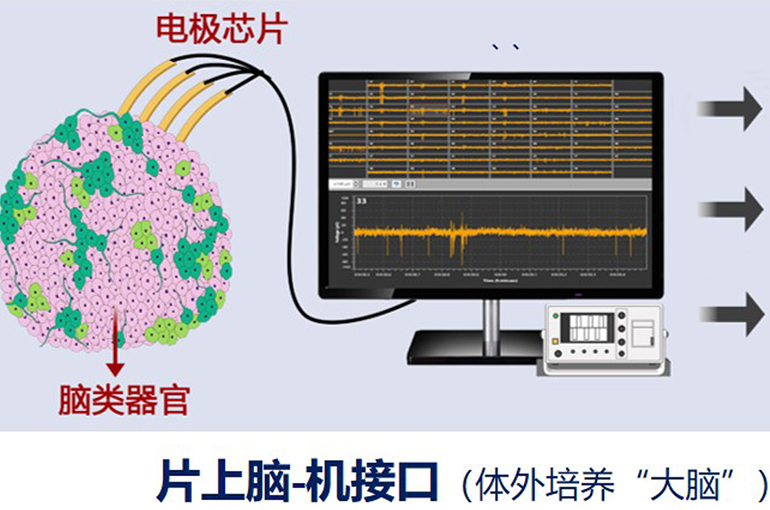 Chinese Scientists Develop World’s First Open-Source Brain-on-Chip Interface System
Chinese Scientists Develop World’s First Open-Source Brain-on-Chip Interface System(Yicai) June 26 -- Chinese scientists have developed the world’s first open-source brain-computer interface on a chip, where the electrical activity of the brain is directly linked to an external chip, as part of ground-breaking research on the fusion of living and non-living things, Science and Technology Daily reported yesterday.
The MetaBOC system uses an artificial brain cultivated in vitro with stem cell technology to form a ‘brain-like organ’ that when coupled with electrode chips can interact with external information through encoding, decoding and stimulation-feedback, the report said, citing research by scientists from Tianjin University and Southern University of Science and Technology that was recently published in the international brain science journal Brain.
MetaBOC can instruct a robot through ‘mind control’ to avoid obstacles, track and grasp items as well as perform a variety of brain-like computing tasks, it added.
The system is pioneering the use of brain-on-chip systems in the field of medical rehabilitation. Low-intensity focused ultrasound can promote the integration and interaction of brain-like organs with hosts, as well as the regeneration and repair of neurodevelopmental defects, the study showed.
Brain-on-chip systems are an important emerging branch in the field of brain-computer interfaces, and are expected to have a revolutionary impact on the development of cutting-edge science and technology fields such as hybrid intelligence and brain-like computing, said Ming Dong, the project leader, vice president of Tianjin University and executive director of the Haihe Laboratory of Brain-Computer Interaction and Human-Machine Integration.
MetaBOC can be used with four major modules and applied to multiple types of brain-on-chip systems, said Li Xiaohong, professor of Tianjin University School of Medicine and head of the brain-computer interface team at the Haihe Laboratory of Brain-Computer Interaction and Human-Machine Integration. It has a diversified stimulation paradigm, incorporates artificial intelligence technology, and can integrate multiple tasks.
"Brain-like organs, which are regarded as the most promising foundation model of intelligence, have similar structures and functions to the human brain, but they still face bottlenecks such as low developmental maturity and insufficient nutrition supply," Li said.
In the future, the team will further explore key scientific issues such as intelligent communication, intelligent migration and intelligent fusion of brain-on-chip interfaces, and promote the early application of brain-on-chip interface technology, the report added.
Editor: Kim Taylor